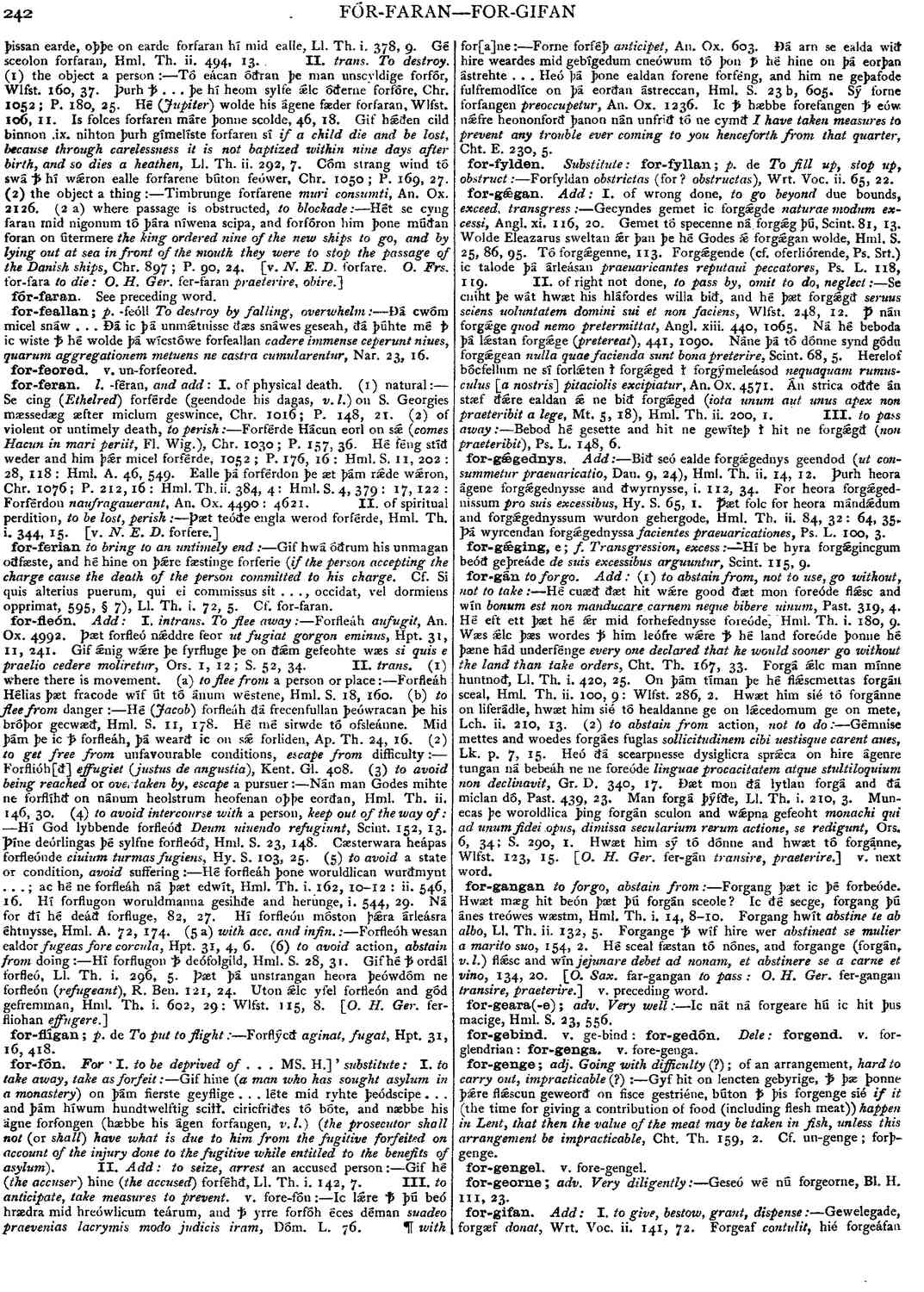for-gǽgan
-
Gecyndes gemet ic forgǽgde
naturae modum excessi,
- Angl. xi. 116, 20 .
-
Gemet tó specenne ná forgǽg þú,
- Scint. 81, 13 .
-
Wolde Eleazarus sweltan ǽr þan þe hé Godes ǽ forgǽgan wolde,
- Hml. S. 25, 86, 95 .
-
Tó forgǽgenne,
- 113.
-
Forgǽgende (cf. oferliórende, Ps. Srt.) ic talode þá árleásan
praeuaricantes reputaui peccatores,
- Ps. L. 118, 119 .
-
Se cniht þe wát hwæt his hláfordes willa bið, and hé þæt forgǽgð
seruus sciens uoluntatem domini sui et non faciens,
- Wlfst. 248, 12 .
-
Ꝥ nán forgǽge
quod nemo pretermittat,
- Angl. xiii. 440, 1065 .
-
Ná hé beboda þá lǽstan forgǽge
(pretereat),
- 441, 1090 .
-
Náne þá tó dónne synd gódu forgǽgean
nulla quae facienda sunt bona preterire,
- Scint. 68, 5 .
-
Herelof bócfellum ne sí forlǽten ł forgǽged ł forgýmeleásod
nequaquam rumusculus [a nostris] pitaciolis excipiatur,
- An. Ox. 4571 .
-
Án strica oððe án stæf ðǽre ealdan ǽ ne bið forgǽged
(iota ununt aut unus apex non praeteribit a lege,
- Mt. 5, 18 ),
- Hml. Th. ii. 200, 1 .
-
Bebod hé gesette and hit ne gewíteþ ł hit ne forgǽgð
(non praeteribit),
- Ps. L. 148, 6 .
Bosworth, Joseph. “for-gǽgan.” In An Anglo-Saxon Dictionary Online, edited by Thomas Northcote Toller, Christ Sean, and Ondřej Tichy. Prague: Faculty of Arts, Charles University, 2014. https://bosworthtoller.com/45676.
Checked: 1